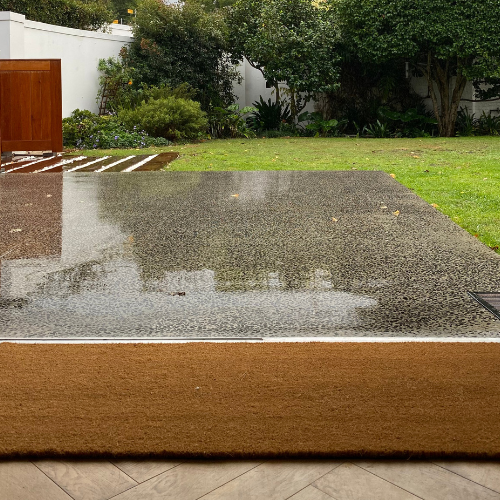.png)
Vinyl planks are a durable, easily maintained flooring option. But there are some places where vinyl should be used with caution. Here's a bit more information as to the Do's and - mainly - the Don'ts of Vinyl Planks.
Vinyl planks are durable and can be easily cleaned, so they make a great choice for even the busiest parts of your home or business.
But there are some things that require special attention before deciding on a vinyl plank option.
Can I install over Tiles?
The short answer is... maybe...
If the tiles are well installed and do not show signs of cracking or lifting, it is possible to screed over the tiles and then install the vinyl plank.
Whatever we put on top is only as strong as the base underneath. So if there is movement on the tiles, this is likely to crack the screed on top. As such, it is a risk going over tiles, but generally, if they have been installed for a long time and do not show signs of movement, it can be safe to screed over. A professional would need to make this call.
Direct Sunlight will fade the vinyl.
Unfortunately, every vinyl - irrespective of brand - will discolour or fade ov er time if it is subjected to regular, extended bouts of direct sunlight. Some products are better than others, but over time, all will be affected by our African sun.
If you have a north-facing area, or an area that is exposed to direct sunlight consistently, you would need to protect the floor.
This could be in the form of curtains or blinds, UV-protection on windows, awnings, etc.
Rising Damp
Vinyl Planks are not affected by moisture, but the glue that bonds them to the subfloor is. In practice, this means that splashing from a bath or shower is not going to be a problem. But if you have Rising Damp, or moisture coming up from the slab beneath, you will have problems.
Rising Damp is often visible via peeling paint or mold on the walls. If existing wooden skirtings are buckled, this can also be a sign of rising damp.
In a similar vein, if doors and windows (especially sliding doors) are not sealed properly, moisture may seep into the slab and causes what appears to be Rising Damp, but is actually the simpler fix of sealing the doorway cavities.
Before laying vinyl planks, a moisture reading must be done. This is a very good indicator of the moisture content in the screed at the time; although if water-tables in an area fluctuate, a problem may not necessarily be picked up in the drier time of the year.
Use a Door Mat

The simplest and best way to prolong the life of (and therefore investment you have made) your floor is a Door Mat. Trapped dirt and grit in shoes can act like sandpaper on your floor. Simply brushing your shoes off on a door mat helps prevent dirt and grit getting into your home in the first place! Try Airloom's great Coir door mats - available in standard sizes and per square meters.
For more information on our different types of flooring, email enquiries@airloom.co.za and we'd be happy to assist you with information or a quote.
 (2).png)

